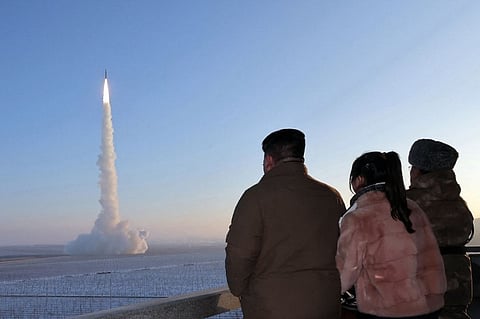
- NEWS
- the EDIT
- COMMENTARY
- BUSINESS
- LIFE
- SHOW
- ACTION
- GLOBAL GOALS
- SNAPS
- DYARYO TIRADA
- MORE

North Korean leader Kim Jong Un warned Pyongyang will not hesitate to launch a nuclear attack if "provoked with nukes", state media said Thursday, while Seoul and its allies called for "dialogue without preconditions".
Kim's comments follow a meeting between South Korea and the United States last week in Washington, where they discussed nuclear deterrence in the event of conflict with the North.
The meeting's agenda included "nuclear and strategic planning", and the allies reiterated that any nuclear attack by Pyongyang on the United States and South Korea would result at the end of the North Korean regime.
But Kim told his military's missile bureau "not to hesitate even (launching) a nuclear attack when the enemy provokes it with nukes," Pyongyang's official Korean Central News Agency said Thursday.
Washington, Seoul, and Tokyo released a statement shortly afterward, urging the nuclear-armed country to "stop conducting further provocations and accept our call for engaging in substantive dialogue without preconditions."
The three countries have ramped up defense cooperation in the face of a record-breaking series of weapons tests by Pyongyang this year, and on Tuesday activated a system to share real-time data on North Korean missile launches.
The North on Monday launched its most powerful ballistic missile, the Hwasong-18, later describing it as "a warning counter-measure" against what it described as persistent acts of "military threat" by Washington and its allies.
Last week, a US nuclear-powered submarine arrived in the South Korean port city of Busan, and on Wednesday, Washington flew its long-range bombers in drills with Seoul and Tokyo.
The North has recently stressed that the "Korean peninsula is in a state of war by law" and that "strategic assets" deployed by Washington in the South "are the first targets of destruction".
